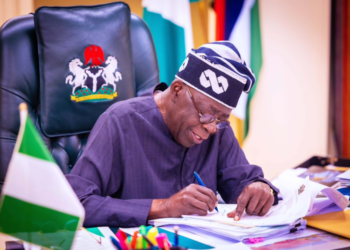President Tinubu has announced his decision to phase out the petrol subsidy regime with immediate effect, citing its disproportionate benefit to the wealthy and the unsustainable costs it incurs. The President emphasized the need to redirect these funds toward crucial investments in public infrastructure, education, healthcare, and job creation, with the aim of improving the lives of millions of Nigerians.
President Tinubu expressed the belief that the subsidy can no longer be justified given the dwindling resources available. Instead, he emphasized the importance of utilizing these funds in a manner that creates tangible and long-term benefits for the citizens. By prioritizing investments in public infrastructure, such as roads, bridges, and power supply, the government aims to enhance connectivity and provide a solid foundation for economic growth.
Education and healthcare were also highlighted as crucial areas for investment. By allocating resources to these sectors, the government aims to improve access to quality education and healthcare services, ultimately uplifting the standard of living and well-being of Nigerians. Additionally, job creation initiatives will be undertaken to address unemployment and provide opportunities for economic empowerment.
President Tinubu also addressed the need for thorough housecleaning in monetary policy. He stressed the importance of working towards a unified exchange rate, redirecting funds from arbitrage activities towards productive investments in industries, equipment, and job creation. The President advocated for lower interest rates, as they can stimulate investment and consumer spending, leading to sustainable economic growth.
Acknowledging the impact of the currency swap policy, President Tinubu stated that it will be reviewed due to its harsh application, particularly in regard to the large number of unbanked Nigerians. In the meantime, both currencies will be treated as legal tender to ensure smooth transactions and provide flexibility for individuals and businesses.
President Tinubu’s speech signals a commitment to economic reforms aimed at maximizing the potential of Nigeria’s resources and fostering inclusive growth. By phasing out fuel subsidies, redirecting funds, and implementing monetary policy reforms, the government aims to create a more sustainable and prosperous future for all Nigerians.










